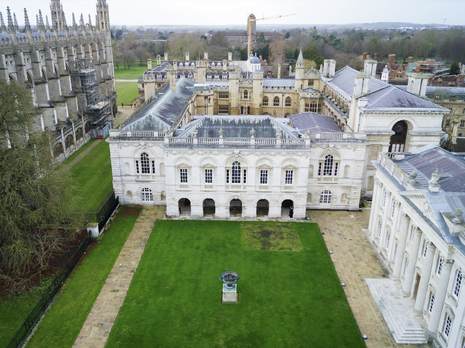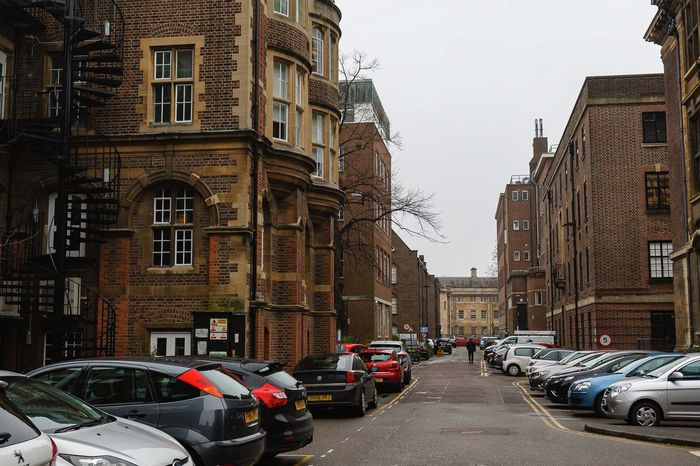‘Impossibly high’ fees discourage international students from applying to Cambridge
A Spanish non-profit which helps students apply to top UK and US universities says many applicants ‘cannot afford’ to study here after Brexit

A Spanish non-profit which advises students applying to top universities has said that “impossibly high post-Brexit tuition fees” mean they are now “actively discouraging” their students from applying to UK institutions, including Cambridge.
Last week, representatives from the Aditus Program - which has reportedly helped students secure offers for Harvard, Princeton and Cambridge - wrote to the vice-chancellor and pro-vice-chancellor for education to inform them that they would be “ceasing to support students applying to UK universities and are actively discouraging them from doing so.”
The letter, drafted by Cambridge alumnus Alonso Campos and current Cambridge PhD student Jesús Arjona (both of whom work with Aditus) goes on to say that the organisation “set out to be hopeful” after Brexit, referring to “productive conversations” with the University’s admissions office - but that increased tuition fees for EU students has meant that they “have seen students who get in and cannot afford their degrees.”
Students from the European Union used to be eligible for the same tuition fees as ‘Home’ students - the last academic year this was the case was 2020-21, during which annual tuition fees were £9,250 for all undergraduate courses. They were also eligible to access student loans from the UK government.
However, due to Brexit, students from EU countries are now considered ‘International’ students, meaning they pay higher fees, and are unable to access government loans. European students with settled or pre-settled status in UK, and all Irish nationals, continue to pay the same fees as domestic students.
An international student starting an English or Economics degree at Cambridge in October can expect to pay £23,340 per year, while fresher medics will pay £60,942.
International students are also expected to pay annual college fee ranging from £9,500 to £10,939, as well as paying for living costs. The University estimates the latter to come to around £11,440 a year for international students.
Campos and Arjona suggest that the high costs make it almost impossible for their students to study in Cambridge, saying that the “vast, vast majority of Spanish families cannot afford the £40k yearly price tag”. One Aditus student who received an offer this year to study Mathematics, was reportedly forced to decline due to financial concerns.
Campos and Arjona acknowledged that there is some help available for international students via sources such as the Cambridge Trust, but they told Varsity that most of these only cover part of the costs of studying.
Arjona said that things are “slowly getting better” at Cambridge, saying that the help offered by the Cambridge Trust and bursaries for international students on offer at Trinity are “very welcome”, but that this only covers a “small fraction” of the thousands of potential international candidates.
Campos told Varsity that this situation “is not even the University’s fault necessarily. They are being forced to charge these tuition fees by the government - the lack of resources for scholarships and so on is also on the government.
“From my point of view, it would be good if Cambridge had a better scholarship fund, but what would be even better is if they didn’t charge £30-40k a year in tuition fees.”
Reflecting on ways to ease access for international students, Campos added: “I would say the best thing [Cambridge] could do is actually lobby the government because they are the ones who are in the best position to do so.”
Speaking about the importance of the work Aditus does, Arjona said: “As well as the aspect of social mobility [...] there is also the fact that Cambridge and the UK does benefit from having that international population.
“A top world university requires the world’s top talent. There are very good students that benefit from Cambridge - but Cambridge also benefits from them.”
Varsity approached the University of Cambridge for comment.
 News / Judge Business School advisor resigns over Epstein and Andrew links18 February 2026
News / Judge Business School advisor resigns over Epstein and Andrew links18 February 2026 News / Hundreds of Cambridge academics demand vote on fate of vet course20 February 2026
News / Hundreds of Cambridge academics demand vote on fate of vet course20 February 2026 News / Petition demands University reverse decision on vegan menu20 February 2026
News / Petition demands University reverse decision on vegan menu20 February 2026 News / CUCA members attend Reform rally in London20 February 2026
News / CUCA members attend Reform rally in London20 February 2026 News / Gov grants £36m to Cambridge supercomputer17 February 2026
News / Gov grants £36m to Cambridge supercomputer17 February 2026











